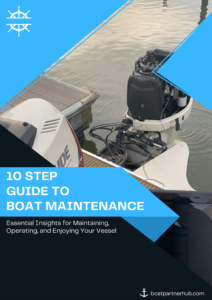Blog
Night Boating Tips: Safety and Adventure Under the Stars

Night Boating Tips: Safety and Adventure Under the Stars – Your Guide to Safe and Enjoyable Nighttime Boating
Night boating offers a unique and enchanting experience on the water. The tranquil beauty of shimmering moonlit waves and the allure of starlit skies create an atmosphere of magic and adventure. However, night boating also comes with its set of challenges and considerations. Whether you’re a seasoned boater or embarking on your first night voyage, this comprehensive guide will provide you with essential tips to ensure a safe and enjoyable night boating experience.
1. Prioritize Safety
a. Check Navigation Lights: Before setting out on your night boating adventure, verify that all navigation lights are in proper working condition. These lights play a crucial role in making your boat visible to other vessels and ensuring safe navigation in the dark.
b. Wear Life Jackets: Ensure that everyone on board is wearing a properly fitting life jacket. Life jackets are vital safety devices that can save lives in the event of an accident or emergency.
c. Keep Emergency Equipment Handy: Have essential emergency equipment, such as flashlights, flares, a first aid kit, and a fully charged cell phone, readily accessible in case of unforeseen circumstances.
2. Know Your Surroundings
a. Familiarize Yourself with the Area: If you’re navigating in unfamiliar waters, take some time to study the charts and familiarize yourself with the area’s potential hazards and landmarks.
b. Reduce Speed: During night boating, visibility is reduced, making it harder to identify obstacles and hazards. Reduce your speed to give yourself ample time to react to any unexpected situations.
c. Avoid Overcrowded Areas: Try to avoid heavily trafficked waterways and crowded areas at night, as navigating around other boats may be more challenging in reduced visibility.
3. Use Proper Lighting
a. Dim Interior Lights: Keep the interior lights of your boat dim to avoid compromising your night vision. Bright lights can make it difficult to see obstacles in the water and adjust to the darkness.
b. Use Red Lights: Red lights have less impact on night vision compared to white lights. Consider using red lighting when needed, especially on the helm or in the cabin.
4. Be Mindful of Wildlife
a. Watch for Marine Life: At night, marine life, such as fish and waterfowl, may be more active. Be alert for their presence to avoid collisions and protect the local wildlife.
b. Avoid Disturbing Wildlife: Refrain from shining bright lights directly into the water, as this can disorient and disturb marine creatures.
5. Have a Float Plan
Inform someone you trust about your night boating plans. Share your intended route, departure, and return times. Having a float plan ensures that someone is aware of your whereabouts in case of an emergency.
6. Use Electronics Wisely
a. Rely on GPS and Navigation Aids: GPS and other electronic navigation aids can be valuable tools for night boating. They provide accurate positioning information and help you stay on course.
b. Monitor Weather Conditions: Keep an eye on weather updates and potential changes during your night boating journey. Sudden weather shifts can impact visibility and water conditions.
7. Maintain a Sober Crew
Boating under the influence (BUI) is just as dangerous at night as it is during the day. Avoid alcohol and substances that impair judgment and reaction times.
FAQs (Frequently Asked Questions)
Q1: Is night boating safe?
A: Night boating can be safe if you take necessary precautions and prioritize safety. Ensure all navigation lights are working, wear life jackets, and have emergency equipment on hand.
Q2: Are there any additional regulations for night boating?
A: Some areas may have specific regulations for night boating, such as speed limits or requirements for additional lighting. Familiarize yourself with local boating laws before heading out at night.
Q3: How do I adjust to the darkness while night boating?
A: Allow your eyes to adjust to the darkness by keeping interior lights dim. Using red lights instead of bright white lights will also help preserve night vision.
Q4: Can I use my regular GPS for night boating?
A: Yes, you can use your regular GPS for night boating. Ensure it’s functioning correctly and consider having backup navigation aids in case of technical issues.
Q5: What should I do if I encounter wildlife while night boating?
A: Slow down and maintain a safe distance from wildlife to avoid collisions. Avoid shining bright lights directly into the water to minimize disturbance.
Conclusion
Night boating can be an unforgettable and serene experience, offering a fresh perspective on the beauty of the water. By prioritizing safety, being aware of your surroundings, using proper lighting, and observing wildlife responsibly, you can enhance your night boating adventure while ensuring the well-being of everyone on board. With these essential tips in mind, you’re ready to embark on a safe and magical night journey under the stars.


